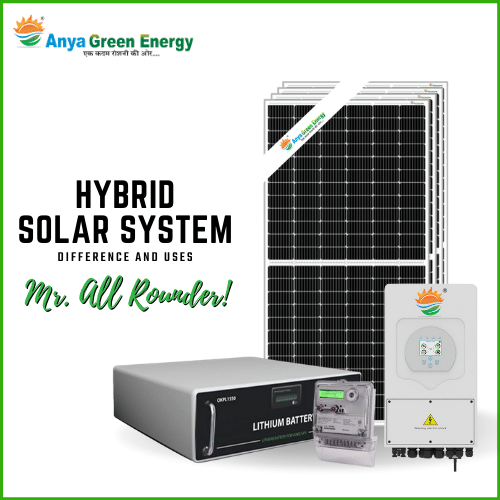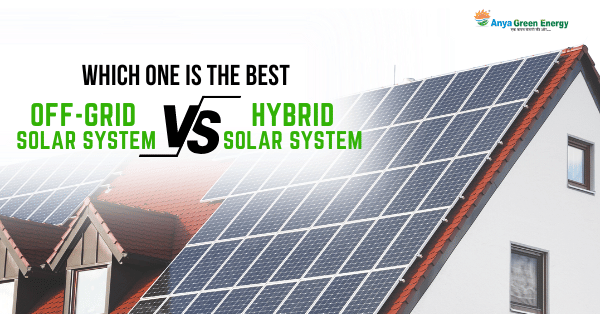HYBRID SOLAR SYSTEM FOR DAIRY FARM
In the dynamic landscape of sustainable farming practices, the integration of renewable energy solutions has emerged as a game-changer. Among these, the hybrid solar system for dairy farms stands out as a beacon of innovation and efficiency. This ingenious amalgamation of solar and traditional power sources has revolutionized dairy farming, offering a range of benefits that are reshaping the agricultural scenario.
GET HYBRID SOLAR SYSTEM FOR DAIRY FARM

Why choose hybrid solar system for dairy farm ?
Dairy farming is a power-intensive venture, requiring electricity for crucial operations like milking machines, cooling systems, and feed processing. Traditional power sources often lead to mounting energy bills, adding financial stress to an already demanding agricultural sector. This is where the hybrid solar system steps in, providing a comprehensive solution that reduces reliance on the grid while cutting operational costs.
Importance of hybrid solar system for dairy farm
The hybrid solar system for dairy farms is a game-changer for the agricultural sector, particularly in regions where consistent grid access is a challenge. By harnessing abundant solar energy, farms can significantly diminish their dependence on conventional power sources. This not only leads to substantial cost savings but also contributes to a more sustainable and eco-friendly farming operation.
Benefits of hybrid solar system for dairy farm
Cost-Efficiency: One of the primary advantages of adopting a hybrid solar system is the significant reduction in electricity expenses. By using solar power during the day and seamlessly switching to the grid or backup generators when necessary, dairy farms can optimize their energy consumption, resulting in substantial savings over time.
Energy Independence: The hybrid solar system offers dairy farms a degree of energy independence, reducing their vulnerability to power outages or grid failures. This ensures uninterrupted operations, particularly during critical tasks like milking and cooling, which are vital for the well-being of the livestock.
Reduced Carbon Footprint: By harnessing solar energy, dairy farms contribute to a reduction in greenhouse gas emissions. This not only aligns with global efforts to combat climate change but also positions the farm as an environmentally conscious and responsible entity within the community.
Scalability and Flexibility: Hybrid solar systems can be tailored to meet the specific energy needs of a dairy farm. Whether it’s a small-scale operation or a large commercial farm, the system can be designed to scale accordingly, providing flexibility to adapt to future expansions or changes in energy requirements.
Potential for Revenue Generation: Excess solar energy generated by the hybrid system can be fed back into the grid through net metering arrangements. This can result in additional revenue streams for the farm, further enhancing its economic viability.
The hybrid solar system for dairy farms exemplifies the fusion of innovation and practicality in the agricultural sector. By seamlessly integrating solar energy with conventional power sources, farms can unlock a multitude of benefits, ranging from cost-efficiency to environmental sustainability. This technology not only empowers dairy farms to become more self-reliant but also positions them as pioneers in adopting eco-friendly farming practices.
In a world where sustainable agriculture is paramount, the hybrid solar system stands as a beacon of hope, heralding a brighter, cleaner future for dairy farming. Embracing this technology is not just a step towards operational efficiency; it’s a commitment to a greener planet and a more prosperous agricultural sector. With each dairy farm that adopts a hybrid solar system, we move one step closer to a more sustainable and resilient agricultural industry for generations to come.


